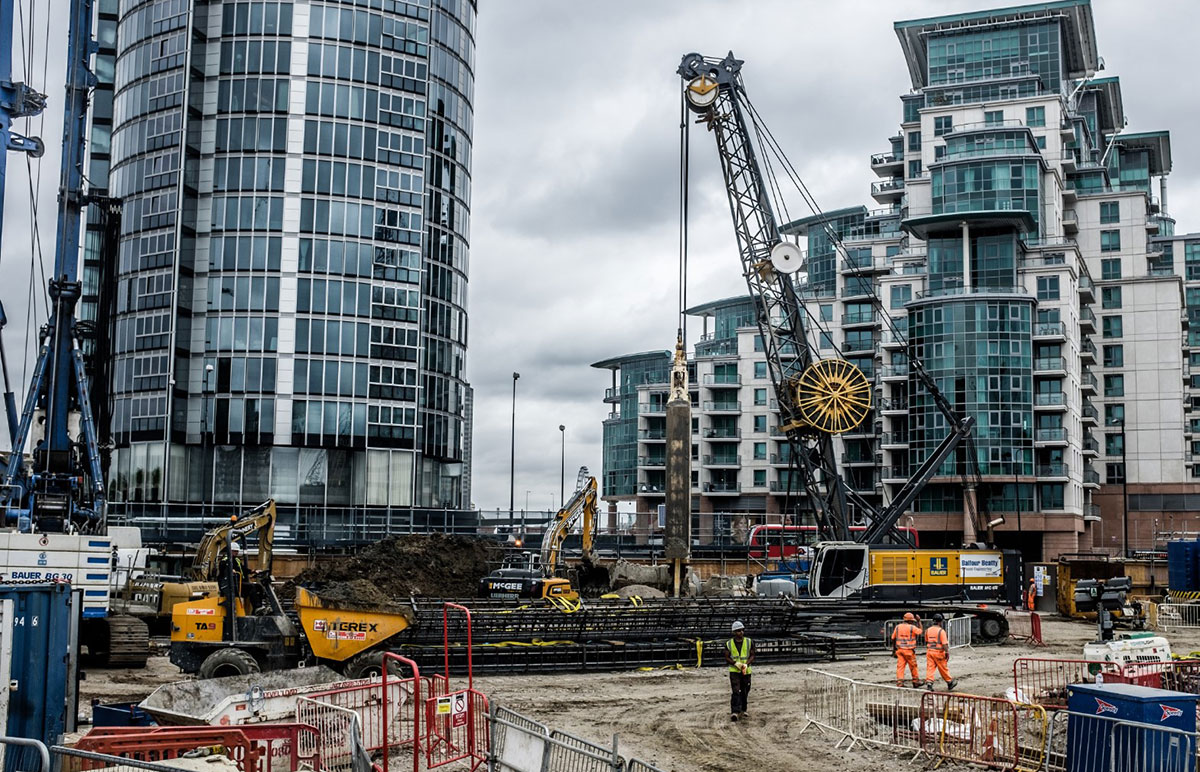The 15-Second Trick For Geotheta
The 15-Second Trick For Geotheta
Blog Article
About Geotheta
Table of ContentsThe smart Trick of Geotheta That Nobody is DiscussingFacts About Geotheta RevealedLittle Known Questions About Geotheta.10 Simple Techniques For GeothetaGeotheta for Beginners

They perform site investigations, accumulate samples, carry out research laboratory tests, and examine data to examine the suitability of the ground for construction jobs - Consulting Engineer. Based on their findings, geotechnical designers offer referrals for foundation style, slope stability, keeping structures, and mitigation of geotechnical hazards. They collaborate with other professionals, such as architects, architectural engineers, and building teams, to guarantee that geotechnical considerations are incorporated right into the overall project style and implementation
By analyzing the actions and residential properties of soil and rock, they can determine potential geotechnical risks such as landslides, dirt negotiation, or incline instability. Their competence aids protect against failings or accidents that could endanger lives and home. Here are some comprehensive responsibilities and obligations of a geotechnical engineer: Site Examination: Geotechnical engineers conduct site investigations to collect information on subsurface conditions.
They analyze the data to comprehend the residential properties and habits of the soil and rock, including their strength, permeability, compaction qualities, and groundwater conditions. Geotechnical Analysis and Layout: Geotechnical designers evaluate the information accumulated throughout website examinations to evaluate the stability and viability of the website for building and construction jobs. They carry out geotechnical calculations and modeling to assess variables such as birthing capacity, negotiation, slope stability, lateral earth pressures, and groundwater circulation.
The smart Trick of Geotheta That Nobody is Talking About
Structure Style: Geotechnical designers play an important role in making foundations that can securely sustain the intended framework. They evaluate the dirt conditions and lots requirements to figure out the appropriate structure kind, such as superficial foundations (e.g., footings), deep foundations (e.g (https://www.cheaperseeker.com/u/geotheta)., heaps), or specialized methods like soil renovation. They take into consideration aspects such as settlement restrictions, birthing capacity, and soil-structure communication to develop optimum foundation styles
They review building plans, display website activities, and conduct area evaluations to validate that the design suggestions are followed. If unanticipated geotechnical problems arise, they analyze the scenario and provide referrals for remediation or changes to the design. Risk Analysis and Mitigation: Geotechnical designers evaluate geotechnical threats and dangers associated with the job website, such as landslides, liquefaction, or dirt erosion.

Partnership and Communication: Geotechnical designers work very closely with various other professionals entailed in a project, such as designers, architectural engineers, and building and construction teams. Efficient interaction and collaboration are necessary to integrate geotechnical considerations right into the general project style and construction procedure. Geotechnical engineers offer technological competence, solution queries, and guarantee that geotechnical needs are fulfilled.
The 5-Second Trick For Geotheta
Right here are some kinds of geotechnical engineers: Foundation Engineer: Foundation engineers focus on making and examining structures for frameworks. They analyze the dirt problems, tons demands, and website features to figure out the most suitable foundation kind and style, such as shallow structures, deep structures, or specialized methods like heap structures.
They assess the elements affecting incline security, such as soil buildings, groundwater problems, and slope geometry, and create approaches to protect against slope failures and mitigate risks. Quake Designer: Earthquake designers focus on assessing and designing structures to stand up to seismic pressures. They evaluate the seismic threat of a site, evaluate soil liquefaction possibility, and develop seismic style standards to make certain the security and resilience of structures during quakes.
They perform area screening, collect samples, and evaluate the gathered data to define the dirt properties, geologic developments, and groundwater problems at a website. Geotechnical Instrumentation Engineer: Geotechnical instrumentation engineers focus on surveillance and determining the habits of soil, rock, and structures. They set up and preserve instrumentation systems that monitor factors such as dirt settlement, groundwater degrees, slope motions, and architectural variations to analyze performance and offer early cautions of potential concerns.
How Geotheta can Save You Time, Stress, and Money.
They perform examinations such as triaxial tests, consolidation tests, direct shear tests, and leaks in the structure tests to collect data for geotechnical evaluation and design. Geosynthetics Engineer: Geosynthetics engineers specialize in the layout and application of geosynthetic materials, such as geotextiles, geogrids, and geomembranes. They utilize these products to boost dirt security, strengthen inclines, provide water drainage options, and control erosion.
They tend to be investigatory people, which implies they're intellectual, reflective, and analytical. They are interested, systematic, logical, logical, and sensible. Some of try this website them are likewise social, meaning they're kind, charitable, participating, individual, caring, useful, empathetic, sensible, and friendly - Engineer of Record.
In the workplace atmosphere, geotechnical designers use specialized software application devices to do calculations, develop layouts, and examine information. They prepare records, evaluation job specifications, interact with clients and team members, and coordinate job activities. The office setup provides a helpful environment for research study, evaluation, and cooperation with other experts associated with the task.
Geotheta - Truths
They often check out job websites to perform site examinations, examine geotechnical conditions, and gather information for analysis. These visits include traveling to different places, occasionally in remote or tough surfaces. Geotechnical designers may perform dirt sampling, conduct tests, and screen building activities to guarantee that the geotechnical facets of the task are being implemented properly.
Geotechnical engineers also work in specialized geotechnical labs. Geotechnical laboratory designers work extensively in these settings, managing testing equipment, operating tools, and tape-recording information.
Report this page